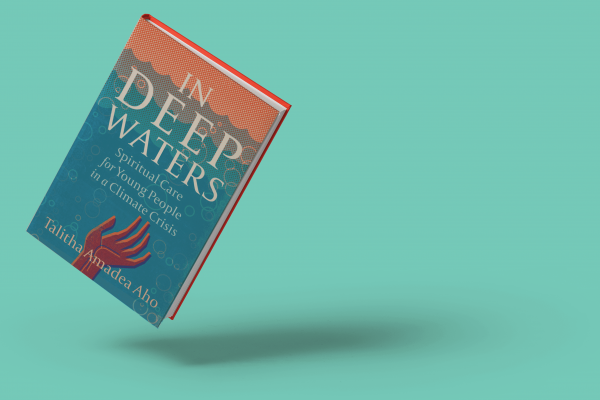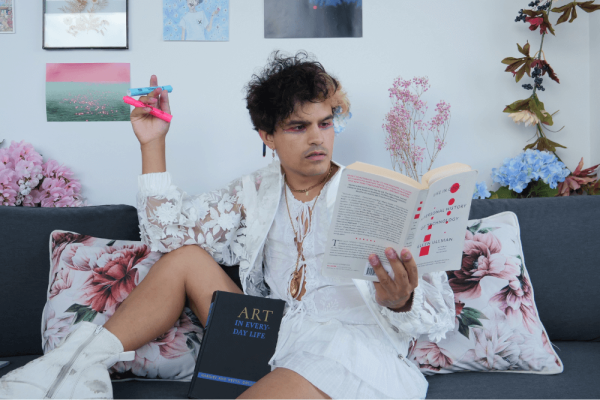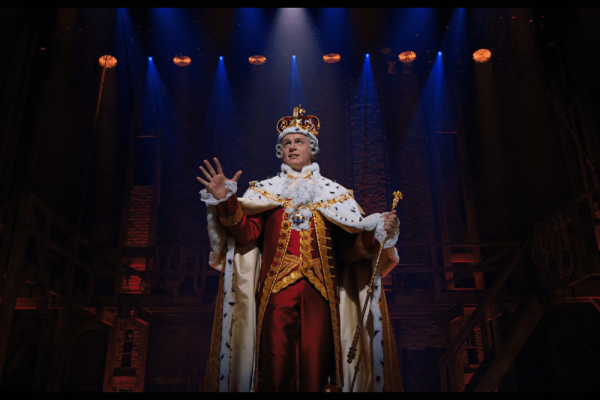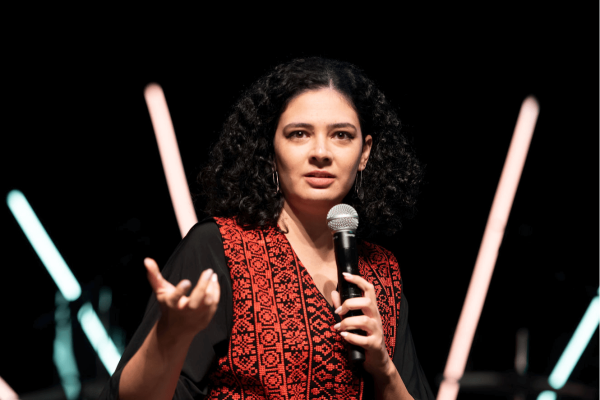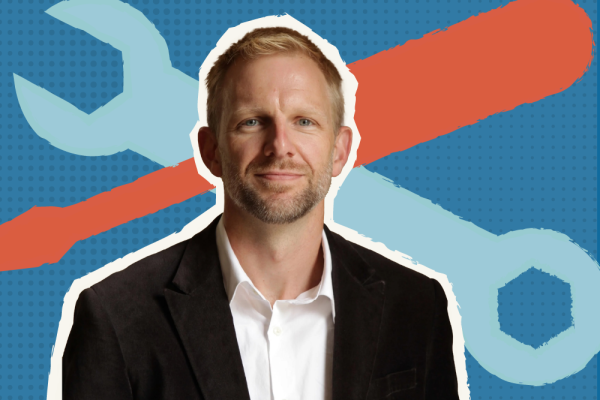“WHO ARE THESE young people?” I asked repeatedly while reading Talitha Amadea Aho’s debut book, In Deep Waters: Spiritual Care for Young People in a Climate Crisis. The Presbyterian pastor writes of her adventures shepherding the youth of her Oakland, Calif., church through beach trash pickups, worsening fire seasons, the pandemic, and mundane youth group activities that lead to big conversations on God’s involvement and human response amid climate emergency.
Aho recounts driving a van full of youth near the 2018 wildfire that destroyed Paradise, Calif., to get to a retreat. “Whatever, we can deal with it. Breathing isn’t the only thing in life,” says one youth. Another, like a prophet, observes, “The Earth will survive; it’s a living organism, and we are the infection on it, and the Earth is cooking up a fever to kill us off.”
It may be that these West Coast youth are more clear-eyed in their diagnoses, living through an apocalyptic reality that we are all careening toward. I can imagine having similar talks with my own children, ages 3 through 8, in a few years. Already, my 8-year-old has said about climate change, “It’s too late.”
Aho offers spiritual strategies to care for the young people in our lives (and perhaps ourselves) who feel betrayed by their elders’ inaction and, worse, their minimizing of the pain. But first, she says, we need to jump in. The waters are rising and “coming of age during the climate emergency is like learning to swim during a flood.” Can we join our young people whose futures have been thrown into the deep end?
The spiritual needs she identifies for young people in climate crisis seem basic: belonging, purpose, and interpersonal accountability. But how do we find our place in a world on fire? How do we grasp our deep belovedness, witnessing how awfully humans have botched our earth-keeping duties? How do we make individual course corrections while keeping an eye toward necessary structural changes? How do we maintain stamina when we know things will get worse before they get better (if they get better)? How do we speak and receive truth without becoming defensive?
Aho deftly uses the swimming metaphor to address all these perplexing questions, and surprisingly few times does the metaphor feel overworked. After all, we are indeed in deep waters, figuratively and literally. What I love best are her accounts of these big conversations with the youth in her care. They model for me the nonanxious presence I want to be for my children and other young people in my life as they come of age in a world falling apart. Beyond that, they contain whiffs of a Holy Presence, which Aho writes is like the ocean, “always there for us, in the mystery, in the change, in the constancy.”
May we care enough to jump in, trust enough to float, and imagine a better future we can all swim toward together.
Sojourners has partnered with Bookshop.org; when you order books through the links on sojo.net, Sojourners earns a small commission and Bookshop.org sends a matching commission to independent bookstores.
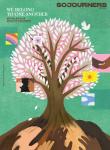
Got something to say about what you're reading? We value your feedback!
